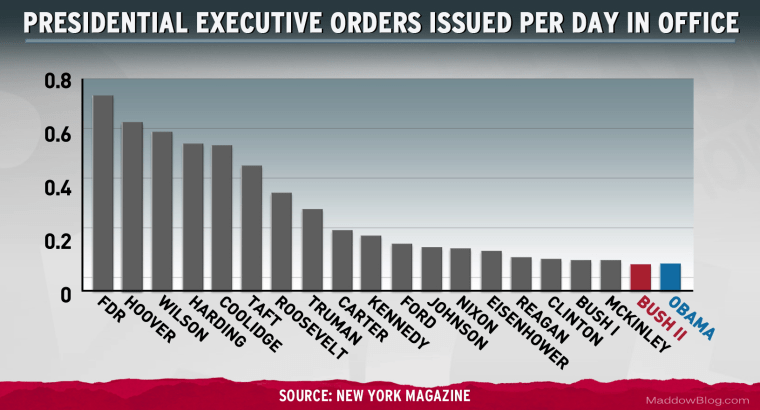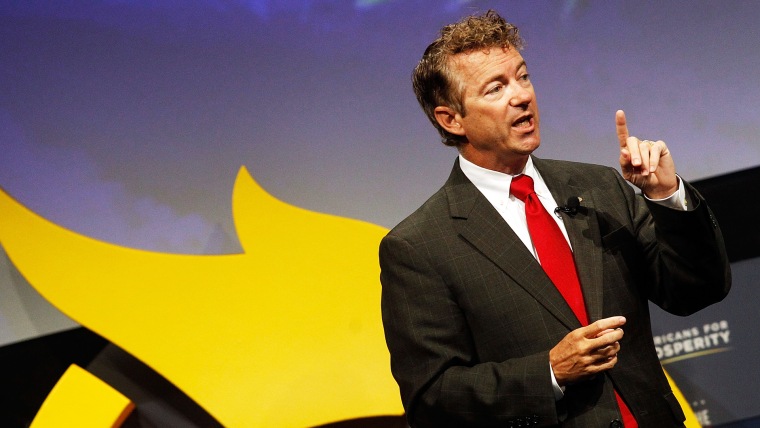When he's not changing his mind about his core beliefs, Sen. Rand Paul (R-Ky.) is making odd policy pronouncements. Take his comments on Friday, for example.
During a talk with the New Hampshire chapter of Generation Opportunity (a millennial-focused group best known for using a creepy Uncle Sam mascot to convince people not to enroll in Obamacare) a young man asked Paul if he would repeal any executive orders. "I think the first executive order that I would issue would be to repeal all previous executive orders," Paul said, according to Breitbart. He continued: "Democracy is messy, but you have to build consensus to pass things. But it's also in some ways good, because a lot of laws take away your freedom. So it should be hard to pass a law. And it, frankly, when you do it the proper way, is."
By one account, Paul's vow to repeal all previous executive orders was met with "booming cheers" from his conservative audience.
It's worth noting that executive orders have been issued to advance some worthy causes over the years. The Emancipation Proclamation, for example, was one of Lincoln's executive orders. Truman ended racial discrimination in the military through an executive order. Ford banned political assassinations through an executive order. If Paul really hopes to "repeal all previous executive orders," he'll sweep up some pretty important measures in his large net.
Late Friday, the senator's office walked this back a bit, suggesting Paul was speaking with a rhetorical flourish at the event. "It was not meant to be taken literally," an aide said.
That's fine, though Paul was asked by a NPR affiliate in Kentucky last month whether he would, as president, ever issue an executive order. "Only to undo executive orders," the Republican senator replied.
In a story like this, the point is less about whether his comments Friday were meant to be taken literally and more about why, all of a sudden, presidential executive orders are necessarily a bad thing.
Every president, starting with George Washington, has made use of this executive branch tool, some more than others. (This doesn't include William Henry Harrison, who died a month after his inauguration),
This isn't because all presidents, to use Paul's reasoning, are hostile towards democracy. They're issued within the legal limits of the executive branch's existing authority. The senator makes it sound as if a president can just issue any executive order he or she wishes, without regard for the "messy" legislative process, to create new law. That's simply not what this tool is all about.
If the senator doesn't understand that, he should.
Indeed, the fact that this has become a common area of complaint among Republicans is rather ironic -- conservatives scream, "Tyranny!" whenever President Obama looks for ways to conduct policymaking on his own, but the fact remains that Obama, on average, has issued fewer executive orders than any president in over a century.

